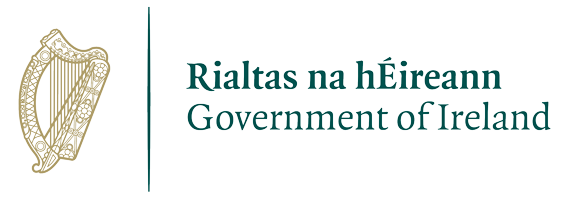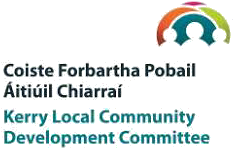In the event of the death of Ukrainian citizens in Ireland, the Embassy of Ukraine in Ireland should be immediately notified by calling +353 86 069 0930
Certain formalities must also be completed before the body can be sent outside Ireland for burial or cremation. Returning a body to its home country is called repatriation. As in many other countries, the Irish government does not provide financial assistance for the costs of repatriating a deceased person.
I. Recording a death
- When a person dies at home, the first thing you should do is contact the doctor (GP). The doctor will come to the house to register the death. They will give you a signed Death Certificate.
- If a person dies in hospital, the doctor records the death and provides a death certificate.
- If a person dies in hospital, the doctor records the death and provides a death certificate.
- If the death is sudden, unnatural or violent, it should be reported to the coroner in the area where the death occurred (coroners and contacts here).
The main function of the coroner’s office is to investigate sudden and unexplained deaths so that a death certificate can be issued. In this case, the legal responsibility for informing the coroner lies with the doctor, the death registry, the funeral home, the landlord or the owner or manager of the place where the person was living at the time of death.
You can report the death to the Garda Síochána (at least a sergeant), who will inform the coroner. The Garda Síochána can also arrange for the body to be officially identified by a family member.
When a citizen of another state dies, the person who records the death notifies the consular office.
II. Moving the body to the morgue
- In circumstances where a person dies at home, you should contact a funeral director to take the body to the mortuary (address of the Irish Funeral Directors Association: Mespil House, Mespil Business Centre, Sussex Road, Dublin. Website: www.iafd.ie/ Phone: 0818 935000).
- When a person dies in hospital, the body is left in the hospital morgue.
- The coroner will transfer the body to the morgue and arrange an autopsy to determine the cause of death in the case of sudden/violent death.
III. Registration a death
Every death in Ireland must be registered within 3 months.
Any family member or relative can register a death. If this is not possible, then the coroner can do it:
- a person who was present at the death;
- anyone who has information about the deceased person – PPS number, place of birth, parents’ names, employment, civil status;
- a manager or authorised person in a hospital, institution or organisation the person who found the body;
- any other person who has knowledge of the death.
To register a death, you need a Death Certificate signed by a doctor. Once you have this signed form, you must register the death as soon as possible with the General Register Office, namely the local Civil Registration Office, which will issue you a death certificate (you can find your local Civil Registration Office here or call 1800 700 700 between 8:00 and 20:00 Monday to Friday or between 9:00 and 17:00 on Saturdays and Sundays).
A person who applies to the Civil Registration Office must bring any document of his/her identity with a photo (passport, driver’s licence, utility card), not the deceased person!
Please note that if an inquest or forensic investigation is conducted, or a pathological examination is carried out, the coroner sends a certificate to the Civil Registration Office. Obtaining a death certificate may be postponed until the cause of death is determined after death.
The coroner can issue you with a temporary death certificate. This can be used to close bank accounts or to cancel social security or pension benefits.
You will not be charged for registering your death. However, there is a fee of €20 for a full standard death certificate.
IV. Preparing the body for repatriation
The body must be officially identified. In some cases, a family member of the deceased may need to travel to Ireland to confirm the identity of the deceased.
If you appoint a Funeral Director in Ireland, they can embalm the body and prepare it for repatriation. Embalming helps preserve the body.
In the event of a post-mortem examination, the funeral director may obtain a release from the coroner so that the body can be prepared for repatriation.
Before the body can be taken out of Ireland, you will need to prepare the following documents:
- death certificate
- coroner’s order for removal/non-infectious note (a certificate or certificate from local health authorities stating that the cause of death of the person to be transported to Ukraine was not caused by infectious diseases or infections)
- certificate of embalming / certificate of cremation issued by a funeral home or cremation office
- a document confirming that there are no unnecessary items in the casket or urn with ashes
- passport or identity card of the deceased person
- declaration of the funeral home
- permission from the Embassy
- notarize or apostille documents
You need to find out from the Embassy of Ukraine in Ireland what formalities and documents are required. Along with these documents, when sending them to the consulate for legalisation, you must also send the passport of the deceased person.
V. Repatriation of the body to Ukraine
The originals of the above documents and notarised translations from English into Ukrainian must accompany the coffin or urn with the ashes to Ukraine.
International law requires that all coffins crossing international borders be lined with zinc or lead and sealed. These coffins are not suitable for cremation. If the body is to be cremated, either the lining must be removed or another coffin must be provided in the country of destination.
The coffin or urn must be sealed by the funeral home.
Only the next of kin of the deceased or persons authorised by them may meet and receive the coffin or urn in Ukraine.
* ADVICE
If the person is not feeling well, it is better to prepare and contact the funeral home before the death. You should also find out the phone number of your GP in advance so that you can contact them after hours.
If the deceased was receiving social assistance, you should notify the social security office of their death.
In the event of financial insolvency, you can apply for assistance from your local Intreo centre as funeral costs are an additional need. To do so, you must fill in the SWA1 form available online and at your local Intreo or Citizens Information Centre.





